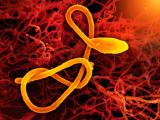Editor's note: This story was updated Jan 30, 2003, with additional information from the Department of Health and Human Services.
Jan 29, 2003 (CIDRAP News) – President Bush yesterday proposed an initiative, called Project Bioshield, to speed the development and production of vaccines and treatments for smallpox, anthrax, botulism, and other diseases that could be spread by terrorists.
In his State of the Union speech, Bush proposed spending about $6 billion on the program over the next 10 years. The comments were part of Bush's remarks about homeland security.
"I ask you tonight to add to our future security with a major research and production effort to guard our people against bioterrorism, called Project Bioshield," Bush said. "The budget I send you will propose almost $6 billion to quickly make available effective vaccines and treatments against agents like anthrax, botulinum toxin, Ebola, and plague."
A White House news release added some more information about the proposal. It said the project would enable the National Institutes of Health (NIH) to speed up research and development of "medical countermeasures" for bioterrorism threats and enable the Food and Drug Administration (FDA) to make promising new treatments available quickly in emergencies.
"The medical treatments available for some types of terrorist attacks have improved little in decades, while there has been tremendous and rapid progress in the treatment of many serious naturally occurring diseases," the release states. "The President believes that, by bringing researchers, medical experts, and the biomedical industry together in a new and focused way, our nation can achieve the same kind of treatment breakthroughs for bio-terrorism and other threats [as the breakthroughs] that have significantly reduced the threat of heart disease, cancer, and many other serious illnesses."
Project Bioshield would be a joint effort of the Department of Homeland Security and the Department of Health and Human Services (HHS), according to the release. Bush proposes to establish a "special secure spending authority" to provide almost $6 billion over the next 10 years to buy new countermeasures for smallpox, anthrax, and botulinum toxin, the release says. "Additional funds will be available to produce and purchase countermeasures for other dangerous agents, such as Ebola and plague, once safe and effective treatments are developed."
A fact sheet distributed by the HHS Office of Emergency Preparedness provided additional details about the proposal. The fact sheet calls the special spending authority a "permanent indefinite funding authority" that would enable the government to buy vaccines and other therapies "as soon as experts believe that they can be made safe and effective, ensuring that the private sector devotes efforts to developing the countermeasures."
The fact sheet states that the NIH's "usual methods for supporting research and development on conventional diseases have been extremely effective in those areas but are not well suited to meet the urgent demands posed by the risk of terrorism." With Project Bioshield, the NIH director would have "increased authority and flexibility to award contracts and grants for research and development of medical countermeasures" for bioterrorism threat agents only. NIH grants would still be subject to "rigorous scientific peer review, but expedited peer review procedures could be used when appropriate." The NIH also could hire technical experts and procure items needed for research more quickly.
The president's proposal also would provide a special authorization for the emergency use of appropriate treatments if those treatments were still under formal FDA review when a bioterrorist attack occurred, according to the fact sheet. This would permit the use of a potentially beneficial treatment in an emergency even if it has not yet been shown to be suitable for routine general use, HHS officials said.
"These new authorities seek to supplement the traditional FDA licensing process to ensure that we could respond effectively in a crisis to use a medical countermeasure that experts judged to be safe and effective, but just had not yet completed the formal FDA process," the fact sheet states. Only drugs under direct government control could be used, and all civilian use would be voluntary, it says.
The emergency use authorization may be limited to particular kinds of medical providers and conditions of use, according to HHS. The authorization would require a finding by the HHS secretary that the likely benefits of the treatment outweighed its risks. Unlicensed drugs can currently be used under "investigational new drug" protocols that include various safeguards, but in an emergency those protocols could keep the treatment from being made available fast enough, officials said.
Concerning the rationale for the proposal, the HHS fact sheet says that the smallpox vaccines available today "are not much different" from those used in the 1960s. "Some treatments for radiation and chemical exposure have not changed much since the 1970s," the statement adds. "The effects of many modern antibiotics on some agents of terrorism such as anthrax or plague are not well known, and modern antibiotics specifically tailored to these agents have not been developed."
States have just begun vaccinating some healthcare workers against smallpox, using an old vaccine grown in calves. The government is buying 209 million doses of a new cell-culture-derived smallpox vaccine, which is now in clinical trials. An anthrax vaccine that requires six doses has been available since 1970 and has been used mainly by the military; the disease can be treated effectively with antibiotics if diagnosed in time.
A limited supply of botulism antitoxin is available from the Centers for Disease Control and Prevention (CDC), which maintains a supply at various metropolitan airports. The antitoxin is most effective if used early in the course of illness and does not reverse existing nerve damage.
See also:
White House news release describing Project Bioshield and other initiatives mentioned in the State of the Union speech
http://georgewbush-whitehouse.archives.gov/news/releases/2003/01/20030128-14.html
CIDRAP information on vaccines and treatments for smallpox, anthrax, botulism, plague, and Ebola and other viral hemorrhagic fevers















